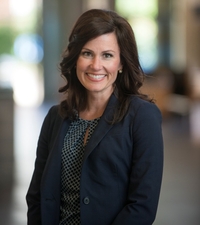COMMUNICATING YOUR ‘SIZZLE EFFECT’
Still, Allison Penning, the San Francisco branch manager of Lasalle Network, a firm specializing in staffing and recruiting, says this generation of college students are drawn to the pizzazz. “It’s all about the flare and it’s all about how you can attract people to just come to your booth,” Penning says of on-campus career events. “It’s not about the meat of the job, it’s what makes your company great. And a lot of it is being able to show how great your company is.”
But Penning believes successful recruiting of millennials goes beyond glitz and glam.”It doesn’t have to be outlandish, it has more to do with how you connect with them at the event,” she claims. And successful connection, Penning says, is communicating what is known in her office as the “sizzle effect,” which goes beyond the job description to what it’s like to really be an employee.
“I think most millennials these days are looking for what the company’s culture looks like, what the office looks like, what the perks are, what the manager is going to be like, what exposure they’ll have to leadership, and when they can get promoted,” she rattles off. “It’s sharing things outside of the job description.Millennials see work-life balance differently,” Penning explains. “They see it as an integration. You’re spending more time with your co-workers than outside your office, so you might as well have fun doing it.”
Opposed to outlandish events, though, Penning believes this can be communicated through some good ol’ fashioned social media presence. “They want to see pictures of your employees having as much fun as they’re having in college. It’s showing them life after college isn’t going to be terrible, it can be fun,” she says.
STUDENTS HAVE ‘COME TO EXPECT’ THIS TYPE OF RECRUITING
Regardless, does all the recruiting hoopla actually work? It’s complicated, says Zikakis. “I can say as a matter-of-fact that PwC hired more students after they did the coffee truck than the year they didn’t do it, but I’m hard-pressed to say it’s because of the coffee truck,” he claims. “But it was another touch point in the marketing of students. It’s the same way you start noticing a car, then you see a billboard for a car, then it’s in a TV show. The more you’re exposed to it, the more you pay attention to it.”
Kwon says it definitely doesn’t hurt. “It was surprising and reinforced the reason I’m interested in working there,” she says, noting General Mills was already a company she admired. “This tool bumped them up a couple notches as an ideal company to work for.”
Either way, Tomas thinks this will be the new norm. “Students have come to expect it,” Tomas says. “They’re going to start thinking, ‘Oh, you’re just doing an info session, oh, OK.’ The stakes have been raised. Companies know they need to compete for these students.”
COMPANIES NOT JUST COMPETING WITH ONE ANOTHER
Tomas also believes companies will soon be competing with more than just other companies—they’ll also be contending with entrepreneurial-minded students.
“Some of the most talented students are taking their skills and going into business themselves,” she says. “And so, we’re asking, ‘consulting firm, what are you going to do to get that student to commit to a few years at your firm before they launch that venture as opposed to doing it right now?’ Because more and more B-schools, Carlson included, are trying to help students do just that.”
DON’T MISS: HOW THE BEST UNDERGRAD PROGRAMS PREP STUDENTS FOR THE JOB MARKET












Questions about this article? Email us or leave a comment below.